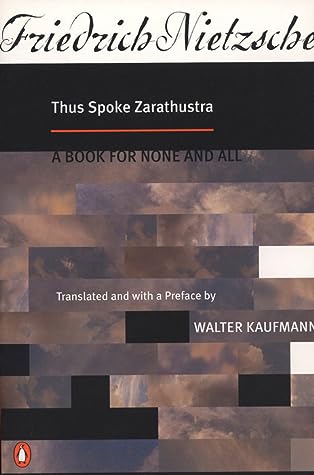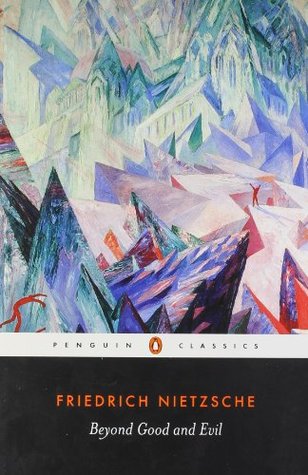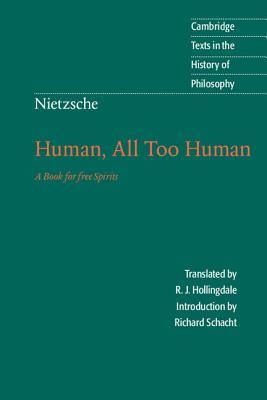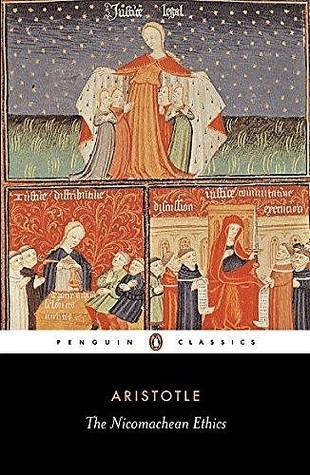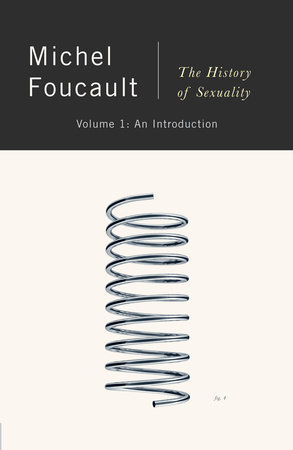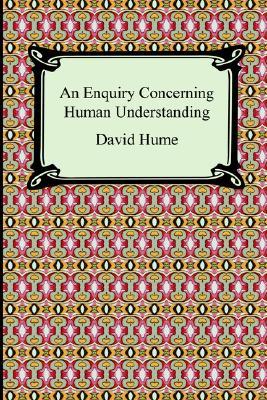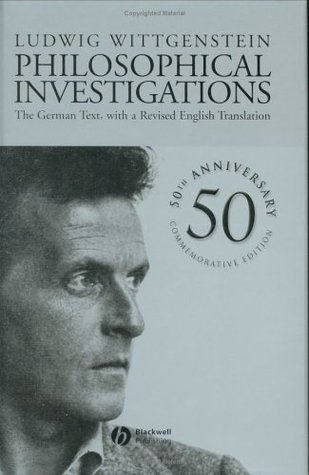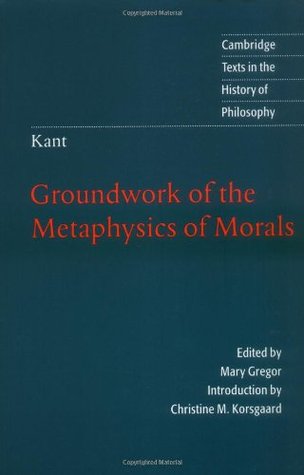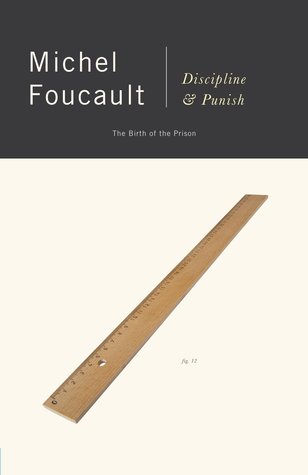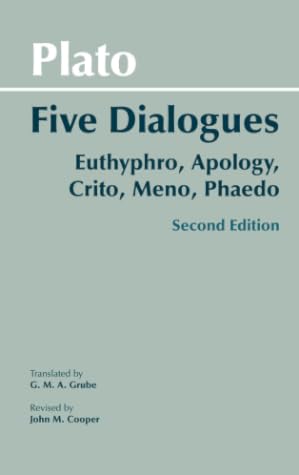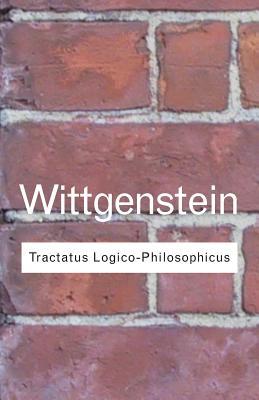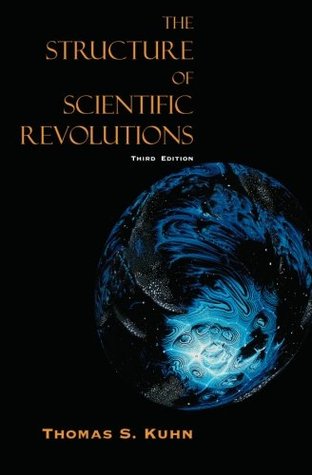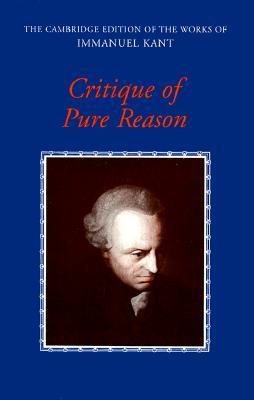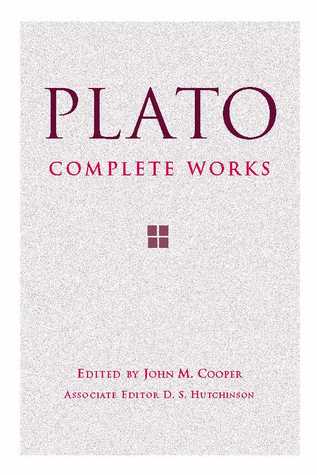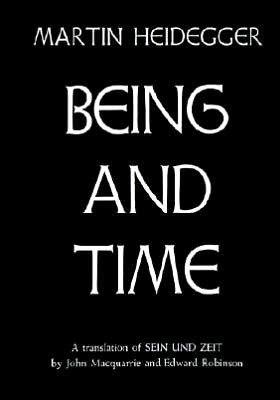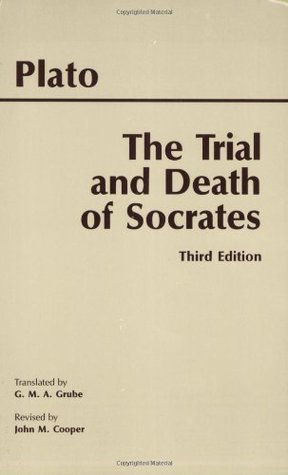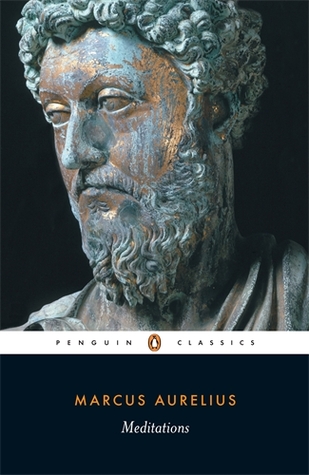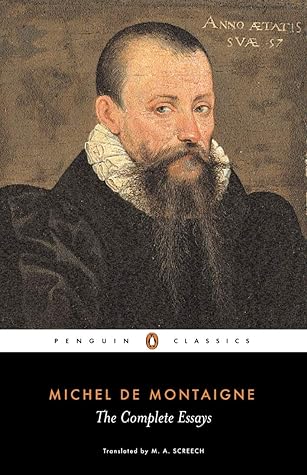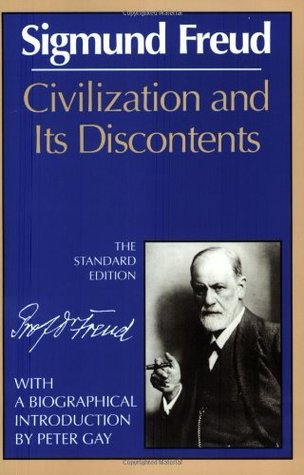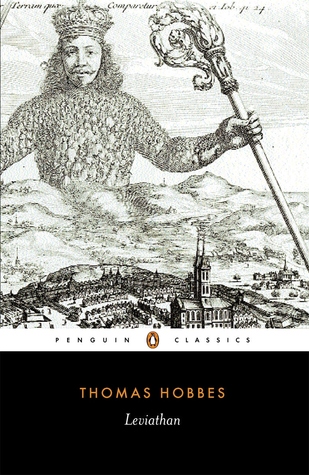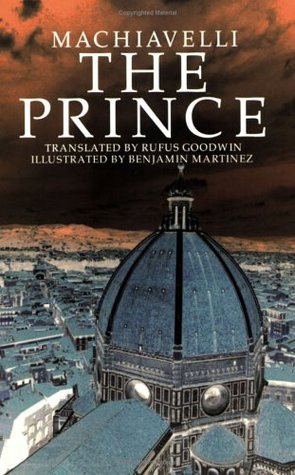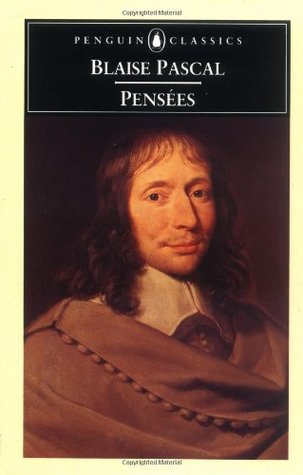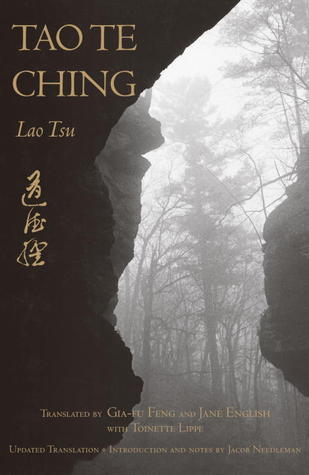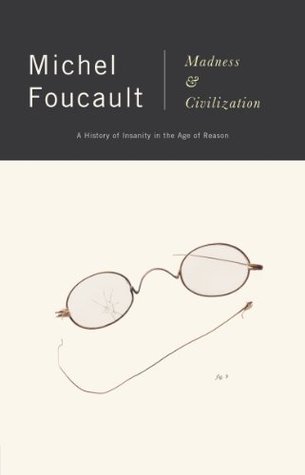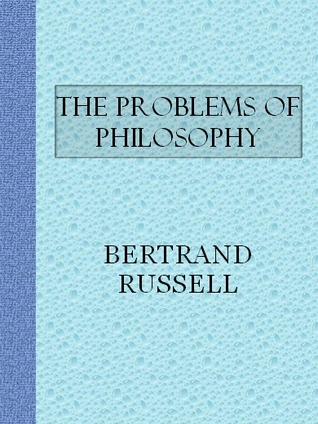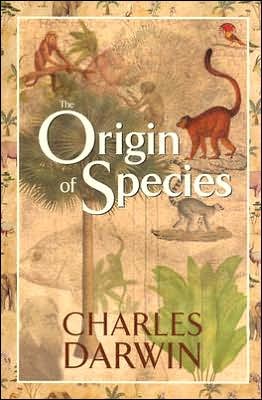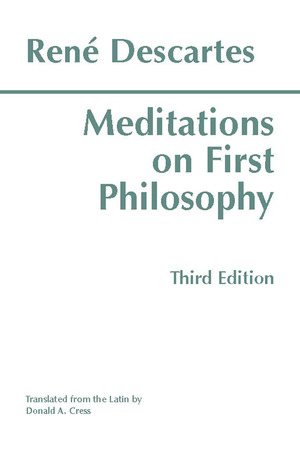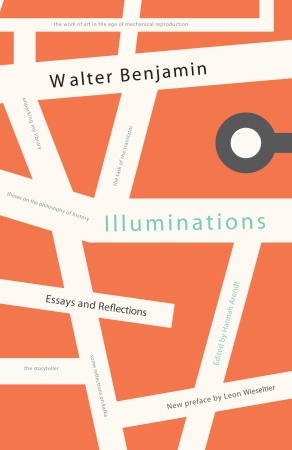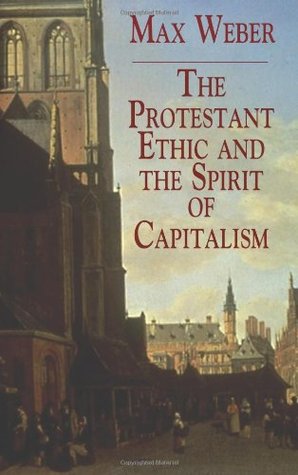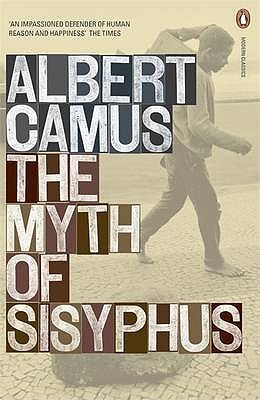Powered by a book like {foo}
Recommendations based on On the Genealogy of Morals / Ecce Homoby Friedrich Nietzsche
* statistically, based on millions of data-points provided by fellow humans
Thus Spoke Zarathustra
by Friedrich Nietzsche
A philosophical treatise exploring morality, religion, and the meaning of life.
Beyond Good and Evil
by Friedrich Nietzsche
A philosophical exploration of morality and truth, challenging conventional morality and religious beliefs.
Friedrich Nietzsche's Beyond Good and Evil is translated from the German by R.J. Hollingdale with an introduction by Michael Tanner in Penguin Classics. Beyond Good and Evil confirmed Nietzsche's ... (Goodreads)
Human, All Too Human: A Book for Free Spirits
by Friedrich Nietzsche
A philosophical exploration of the human condition and the pursuit of morality.
This volume presents Nietzsche's remarkable collection of almost 1400 aphorisms in R. J. Hollingdale's distinguished translation, together with a new historical introduction by Richard Schacht. ... (Goodreads)
The Nicomachean Ethics
by Aristotle
An exploration of virtue and morality, providing guidance on how to live a good life.
‘One swallow does not make a summer; neither does one day. Similarly neither can one day, or a brief space of time, make a man blessed and happy’ In the Nicomachean Ethics , Aristotle sets out to ... (Goodreads)
The History of Sexuality, Volume 1: An Introduction
by Michel Foucault
Examination of the power dynamics and social constructions of sexual behavior.
Michel Foucault offers an iconoclastic exploration of why we feel compelled to continually analyze and discuss sex, and of the social and mental mechanisms of power that cause us to direct the ... (Goodreads)
An Enquiry Concerning Human Understanding
by David Hume
Analysis of the nature of human understanding, challenging existing philosophical and religious beliefs.
An Enquiry Concerning Human Understanding, is a book by the Scottish empiricist philosopher David Hume , published in English in 1748. , It was a revision of an earlier effort, Hume's A Treatise of ... (Wikipedia)
Philosophical Investigations
by Ludwig Wittgenstein
Wittgenstein's exploration of language and meaning, challenging traditional philosophical concepts and proposing new ways of understanding language games.
Philosophical Investigations, ( German : Philosophische Untersuchungen ) is a work by the philosopher Ludwig Wittgenstein . The book was published posthumously in 1953. Wittgenstein discusses ... (Wikipedia)
Groundwork of the Metaphysics of Morals
by Immanuel Kant
Examination of the foundations of moral philosophy, focusing on the nature of moral obligation.
Immanuel Kant's Groundwork of the Metaphysics of Morals ranks alongside Plato's Republic and Aristotle's Nicomachean Ethics as one of the most profound and influential works in moral philosophy ever ... (Goodreads)
Discipline and Punish: The Birth of the Prison
by Michel Foucault
Examines the emergence of the modern prison system and its effects on society.
Librarian note: an alternate cover for this edition can be found, here,. Barely two hundred and fifty years ago a man condemned of attempting to assassinate the King of France was drawn and quartered ... (Goodreads)
Five Dialogues: Euthyphro, Apology, Crito, Meno, Phaedo
by Plato
Classic dialogues exploring the nature of morality, justice, knowledge, and death.
The second edition of Five Dialogues presents G. M. A. Grube's distinguished translations, as revised by John Cooper for Plato, Complete Works (Hacket, 1997). Cooper has also contributed a number of ... (Goodreads)
Tractatus Logico-Philosophicus
by Ludwig Wittgenstein
A philosophical treatise on language, logic, and the limits of human understanding.
Perhaps the most important work of philosophy written in the twentieth century, Tractatus Logico-Philosophicus was the only philosophical work that Ludwig Wittgenstein published during his life. ... (Goodreads)
The Structure of Scientific Revolutions
by Thomas S. Kuhn
An analysis of how scientific progress is made, and the role of paradigms and paradigmatic shifts.
A good book may have the power to change the way we see the world, but a great book actually becomes part of our daily consciousness, pervading our thinking to the point that we take it for granted, ... (Goodreads)
Critique of Pure Reason
by Immanuel Kant
Exploration of the limits of human reason and its limitations in understanding nature.
'The purpose of this critique of pure speculative reason consists in the attempt to change the old procedure of metaphysics and to bring about a complete revolution', Kant's Critique of Pure Reason ... (Goodreads)
Plato: Complete Works
by Plato
Collection of ancient Greek philosopher Plato's dialogues, discussing morality, knowledge and truth.
Outstanding translations by leading contemporary scholars–many commissioned especially for this volume--are presented here in the first single edition to include the entire surviving corpus of works ... (Barnes & Noble)
Being and Time
by Martin Heidegger
Exploration of the basic questions of existence, re-examining the fundamentals of philosophy.
One of the most important philosophical works of our time, a work that has had tremendous influence on philosophy, literature, and psychology, and has literally changed the intellectual map of the ... (Goodreads)
The Trial and Death of Socrates
by Plato
A philosophical dialogue into the life and death of the philosopher Socrates.
Plato is among the most influential philosophers of all time. Along with his teacher Socrates and his pupil Aristotle, he can be said to have laid the foundations for Western philosophy, science and ... (Goodreads)
Meditations
by Marcus Aurelius
Reflections on Stoic philosophy, exploring the nature of existence and how to live life.
Written in Greek by the only Roman emperor who was also a philosopher, without any intention of publication, the Meditations of Marcus Aurelius offer a remarkable series of challenging spiritual ... (Goodreads)
The Complete Essays
by Michel de Montaigne
Collection of essays exploring diverse topics, from philosophy to morality.
Michel de Montaigne was one of the most influential figures of the Renaissance, singlehandedly responsible for popularising the essay as a literary form. This Penguin Classics edition of The Complete ... (Goodreads)
Civilization and Its Discontents
by Sigmund Freud
Exploration of the psychological underpinnings of human civilization and its discontents.
It stands as a brilliant summary of the views on culture from a psychoanalytic perspective that he had been developing since the turn of the century. It is both witness and tribute to the late theory ... (Goodreads)
Leviathan
by Thomas Hobbes
Philosophical exploration of the nature of power and justice in a state of nature.
'The life of man, solitary, poore, nasty, brutish, and short' Written during the chaos of the English Civil War, Thomas Hobbes' Leviathan asks how, in a world of violence and horror, can we stop ... (Goodreads)
The Prince
by Niccolò Machiavelli
A timeless political treatise on the art of acquiring and maintaining power.
Machiavelli needs to be looked at as he really was. Hence: Can Machiavelli, who makes the following observations, be Machiavellian as we understand the disparaging term? 1. So it is that to know the ... (Goodreads)
Pensées
by Blaise Pascal
Reflections on faith, reason and the human condition, presenting a defense of Christianity.
Blaise Pascal, the precociously brilliant contemporary of Descartes, was a gifted mathematician and physicist, but it is his unfinished apologia for the Christian religion upon which his reputation ... (Goodreads)
Tao Te Ching
by Lao Tzu
A collection of wise sayings and reflections on the nature of existence.
A lucid translation of the well-known Taoist classic by a leading scholar-now in a Shambhala Pocket Library edition. Written more than two thousand years ago, the Tao Teh Ching , or -The Classic of ... (Goodreads)
Madness and Civilization: A History of Insanity in the Age of Reason
by Michel Foucault
Examination of the changing attitudes towards mental illness over time and the implications of social control.
Librarian note: an alternate cover for this edition can be found, here,. Michel Foucault examines the archeology of madness in the West from 1500 to 1800 – from the late Middle Ages, when insanity ... (Goodreads)
The Problems of Philosophy
by Bertrand Russell
A concise introduction to philosophy, exploring the nature of knowledge, reality, and existence.
A lively and still one of the best introductions to philosophy, this book pays off both a closer reading for students and specialists, and a casual reading for the general public. ... (Goodreads)
The Origin of Species
by Charles Darwin
Comprehensive scientific exploration of the evolution of species and the natural world.
Darwin's theory of natural selection issued a profound challenge to orthodox thought and belief: no being or species has been specifically created; all are locked into a pitiless struggle for ... (Goodreads)
Meditations on First Philosophy
by René Descartes
Reflection on the nature of reality and human knowledge.
Descartes's Meditations on First Philosophy , the fundamental and originating work of the modern era in Western philosophy, is presented here in Donald Cress's completely revised edition of his ... (Goodreads)
Illuminations: Essays and Reflections
by Walter Benjamin
Collection of philosophical and literary essays on a range of topics.
Essays and reflections from one of the twentieth century’s most original cultural critics, with an introduction by Hannah Arendt . Walter Benjamin was an icon of criticism, renowned for his insight ... (Barnes & Noble)
The Protestant Ethic and the Spirit of Capitalism
by Max Weber
Examines the relationship between Protestantism and the rise of capitalism, arguing that religious beliefs influenced economic behavior.
The Protestant ethic — a moral code stressing hard work, rigorous self-discipline, and the organization of one's life in the service of God — was made famous by sociologist and political economist ... (Goodreads)
The Myth of Sisyphus
by Albert Camus
An essay on understanding the absurdity of life, and realizing there is meaning in even the most mundane tasks.
Throughout history, some books have changed the world. They have transformed the way we see ourselves—and each other. They have inspired debate, dissent, war and revolution. They have enlightened, ... (Goodreads)
